A Failure of Reimagination?
In 1948, in the shadow of the greatest catastrophe the Jews had ever experienced and in the throes of a Jewish rebirth that not long before would have seemed unimaginable, Simon Rawidowicz wrote his classic essay, “Israel: The Ever-Dying People.” “Israel makes only one image of itself,” he observed, “that of being constantly on the verge of ceasing to be, of disappearing.” One “who studies Jewish history,” he wrote, “will readily discover that there was hardly a generation in the Diaspora that did not consider itself the final link in Israel’s chain.”
While Maimonides was worrying that his death might mark the end of Jewish scholarship, Jewish communities of which he knew nothing were sprouting up across Europe; they would be home, for centuries, to thousands of Judaism’s greatest scholars. When Y. L. Gordon, the great poet of the Haskalah, expressed his fears that he, too, was the last, he did not know that not all that far away lived Chaim Nachman Bialik, who would elevate Hebrewpoetry to even greater heights. The Jews, says Rawidowicz, did two things: They worried about surviving, and they survived. Ironically, he suggests, that desperation might actually have been the antidote to disappearing. Of the Jewish people, he wrote, “in anticipating the end, it became its master.”
In recent decades, American Jews were no exception to Rawidowicz’s thesis. Alan Dershowitz’s The Vanishing American Jew was emblematic of a whole genre; Elliott Abrams’s Faith or Fear: How Jews Can Survive in a Christian America, David Wolpe’s Why Be Jewish?, and my own Does the World Need the Jews? are just three more examples of what once seemed a never-ending list. The hand-wringing over what came to be called the “Jewish continuity crisis”—whether the children and grandchildren of American Jews would remain Jewish—was born of the same worries. Late 20th-century American Jews, like those who had preceded them, had built impressive organizations and had made significant inroads into American society. Still, they worried that the end was nigh and labored to make a case for survival.
Keep your ear to the tracks now, though, and you’ll hear a different rumbling. If the fear once was that American Jewish young people were abandoning Judaism, today the worry is that they are abandoning Israel. Can one think of a prolonged conversation about young American Jews that is not focused on J Street, IfNotNow, or the Democratic Party? We once worried about the faith of younger generations; now we worry about their politics.
Alongside this shift from a focus on religion to a preoccupation with politics, there is another development. A few of American Judaism’s most provocative voices have begun to suggest that their community’s disappearance wouldn’t be a disaster after all. Here is novelist Michael Chabon in his infamous speech to the 2018 graduating class of Hebrew Union College in Los Angeles:
On the day that the last Jewish couple dies, after watching their children marry Hindus, Lutherans, atheists, Sunnis, Buddhists—the fault for that extinction will lie squarely with Judaism itself, and not because Judaism failed to enforce its teachings against intermarriage but because it was necessary ever to have such teachings in the first place.
Chabon, of course, ambushed my unfortunate Reform colleagues, but he was also just taking a cosmopolitan stance common in liberal American Jewish circles to its logical extreme. While no one in the organized Jewish world agreed with Chabon’s conclusion (indeed, HUC Dean Joshua Holo took to these pages to denounce him), there is also noticeably less worry over the “last Jewish couple” than ever before, even from the ranks of official Jewish community representatives who often speak now of intermarriage as an opportunity to expand the Jewish ranks. Given that the continuity data has not improved in the past two or three decades, to say the least, why has the worry largely ceased?
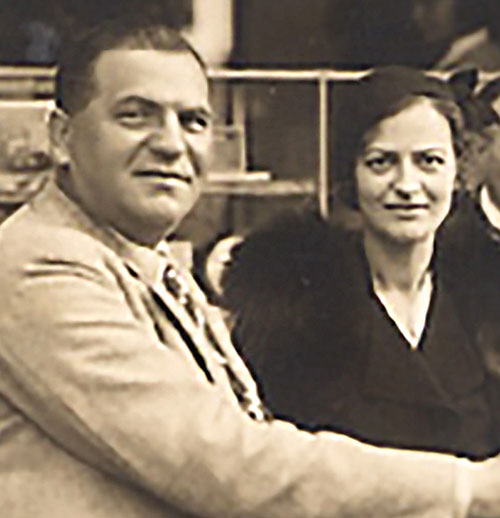
One might argue that I am not the right person to raise such questions since my wife and I left the United States for Israel more than 20 years ago. Yet my work at Shalem College brings me back to America almost every month. From my vantage point, as an emigrant who has never really gone away, it seems to me that the decreasing sense of urgency about Jewish survival stems from the fact that most American Jews, having lost a sense of peoplehood and then a commitment to religion or Torah, have recently assumed an identity that is focused on little but politics. Yet as a form of politics, Judaism has, so far, found little to say that is uniquely Jewish. And if we have nothing unique to say, does it really matter if American Jews do not survive?
American Jews’ jettisoning of Jewish nationalism, in the broad sense of understanding themselves to be a distinct people, did not come out of nowhere. Like the step away from religion that would follow, it was distinctly American, in perfect keeping with the ethos of At the age. American Jews understood that the entrance ticket to American society was not free of charge. Woodrow Wilson told newly naturalized Americans in 1915 that “a man who thinks of himself as belonging to a particular national group in America has not yet become an American, and the man who goes among you to trade upon your nationality is no worthy son to live under the Stars and Stripes.” Why would American Jews not drop their sense of being “a people apart” if they wanted into America?
Over the 20th century, American Jews became, as the 1885 Pittsburgh Platform of the Reform movement had already presciently argued, “no longer a nation, but a religious community,” desiring “neither a return to Palestine . . . nor the restoration of any of the laws concerning the Jewish state.” Will Herberg called his 1955 sociology of American religion Protestant, Catholic, Jew precisely because he held that the greatness of America for Jews was that it allowed Judaism to become another American religion, alongside Protestantism and Catholicism.
The 1940s through the 1960s were the heyday of Judaism-as-religion in American life. Those were the decades of rapidly expanding synagogue affiliation. TIME magazine reported in 1951:
Old, half-deserted synagogues are filling up again, new congregations are forming, new synagogues are being built. Young married couples are sending their children to religious schools to learn the fundamentals of their faith—then forming study groups so that they will know what their children are talking about. The word that such young Americans use . . . when they are asked what they are looking for, is “heritage.”
It was thus no accident that Conservative Judaism, noted more than anything for its ongoing project of adapting traditional religious heritage to American life (it was still tepid on Zionism and less interested in civil rights and American social policy than the Reform movement), was by far the largest of the movements.
For a while, that reimagination of Judaism worked. But 20th-century America was not kind to liberal religion. Liberal Protestantism was hit the hardest, but Judaism did not escape unscathed. Particularly for the young, the 1960s undermined both belief and the perceived value in community and conformity. As Jews made their way to the suburbs and the close-knit Jewish communities of early 20th-century American Jewish life began to erode, the unspoken pressure to conform to Jewish communal standards also dissolved, and with that pressure went the sense of clannish belonging that it had fostered. Rather, in the professions as well as in academics, progress was deemed conditional on a willingness to be in tune with the broader American zeitgeist. Among most prominent Jewish intellectuals of the time, from the decorous Lionel Trilling to the scabrous Philip Roth, traditional Judaism ranked somewhere between irrelevant and objectionable.
Rank and file non-Orthodox American Jews were hardly preoccupied with theological questions, but to whatever extent they—or more likely, their rabbis who trained at the Jewish Theological Seminary or Hebrew Union College—thought about Jewish theology, that, too, became difficult. Could Jews desperate to fit in and to become part of the fabric of heterogenous America still confidently speak of themselves as the Chosen People? The notion that Jews “shall be to Me a kingdom of priests and a holy nation” was unpalatable. Reform Judaism, like Reconstructionism, excised it; the other movements reduced it to a whisper.
The Conservative movement contorted itself to make possible both a claim about the divine authority of the Torah and the legitimacy of biblical criticism. Yet that experiment, we can now say with half a century’s hindsight, failed. Unlike in Orthodoxy, where a sense of accepting the “yoke of the commandments” was carefully cultivated and underwritten by strong communal norms, in non-Orthodox Jewish life, it essentially disappeared.
Then, powerful socio-political movements gutted much of what remained. First feminism—and the Conservative movement’s decision to ordain women—intimated that it was sociology, not halakha, that would set the course for what was the center of American Jewish life. The recent decision to embrace homosexuality—a long-overdue moral step in the eyes of many—raised even more insurmountable halakhic issues, which were then surmounted. Even many of those who approved had to acknowledge that contemporary morality trumped halakha. In other words, classic religion was giving way to politics.
Last year, Conservative rabbis were given permission to attend—but not officiate at—intermarriages. No one was happy with this compromise, and everyone senses a major shift in the offing, one that will make the Conservative and Reform movements virtually indistinguishable. Yet there is very little discussion, certainly not halakhic discussion (what is there to say?), of the visions of Judaism or Jewish survival in the context of which a decision to sanction intermarriage should be made. The only real question is not whether, but when. “What alternative is there?” advocates of the change ask fairly, because standing firm against the social tides is simply no longer possible.
“The art of the possible” is how Bismarck defined politics.
Several decades ago, American Judaism was home to serious theologians. They included giants such as Abraham Joshua Heschel, Jakob Petuchowski, and Joseph Soloveitchik (all of them, interestingly, European-born), as well as Arthur A. Cohen, Emil Fackenheim, Will Herberg, and others. Are there American Jewish religious thinkers who have the public stature of those of previous generations? One might mention Shai Held and Meir Soloveichik among a (very) few others, but I think it’s fair to say that their work is deeply informed by theology rather than a systematic attempt to think through Judaism as a system. Certainly, the audience for such work has almost vanished. Synagogue discourse tells the story; in how many congregations do worshippers confront the ideas, texts, and thinkers that once made Judaism one of the world’s great civilizations? Or, more simply, how much God-talk goes on in American shuls of any denomination?
What has slowly but inexorably emerged where religion once stood is politics. Even those issues that exercise American Jews that seem religious are actually political. Non-Orthodox American Jews, for instance, care deeply about what Israel’s rabbinate says about their conversions but no longer worry in the least about what American Orthodox rabbis think. Hardly any American Orthodox rabbis will honor a Conservative conversion, but the chances of an American Conservative Jew marrying an American Orthodox Jew are astronomically higher than the likelihood that he or she will marry an Israeli. So why the virtual hysteria about the latter but indifference to the former? It is because American Jews’ relationship to other American denominations is merely a religious issue; their attachment to Israel is their politics, and that is what they care about.
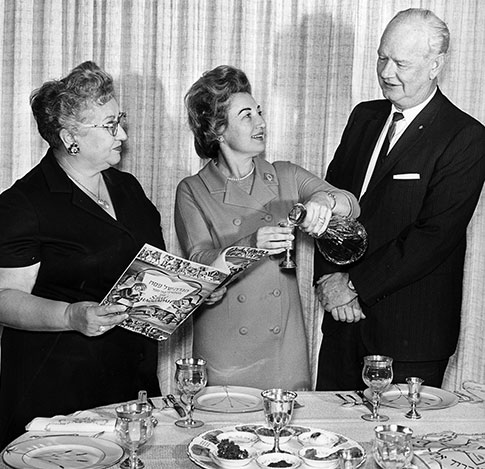
What does arouse passionate debate in American Jewish life? Israel is always the central topic, vigorously, often toxically, debated. But the Israel conversation is essentially a conversation about Israeli-Palestinian relations and the ultra-Orthodox rabbinate—politics. Conversations about Israel’s endlessly fascinating contemporary culture are virtually absent from American Jewish life. Where, aside from a few publications, is the conversation about the ways in which the ghosts of Ahad Ha’am, A. D. Gordon, Rav Kook, Vladimir Ze’ev Jabotinsky, and Max Nordau still hover over and enrich the entire national enterprise? And what of the explosion of creativity in Israeli literature?
In Israel, a distinctly new form of religious life is emerging. It is nationalist, but not nearly as secular as Israel’s founders might have hoped it would be. It is in dialogue with Jewish tradition in ways both obvious and subtle, and is replete with rituals that essentially merge national and religious identities. Camil Fuchs and Shmuel Rosner, the authors of #Yahadutyisraelit (it’s available only in Hebrew, but was reviewed in these pages by Yossi Shain and Michal Schwartz), show that today’s “Jewsraeli” is “confident about [generational] continuity, attributes a high level of importance to being Jewish, mixes Israeli nationality with Judaism, and shows a strong tendency to practice Jewish tradition.” Similarly, Micah Goodman, one of Israel’s leading public intellectuals, argues in his newest book (also only in Hebrew), Chazara beli teshuvah (Returning without Repenting), that a new kind of secular Judaism has emerged in Israel that is distinctively Jewish and Israeli.
This is not to suggest that Israel has solved the problems of modern Jewish identity. Far from it. There is an ever-present danger of xenophobia, racism, and intolerance. In many swathes of Israeli life, Jewish illiteracy is a real issue. The interminable conflict with the Palestinians has without question calloused part of Israel’s soul, and one can make a case that these are existential threats. Still, it is also without question the case that in Israel, where Jews are the majority, where they conduct their lives in their people’s language, where there is no pressure to conform to non-Jewish norms, and where Mizrahi influence has helped restore a powerful religious resonance to national secular life, a fascinating new form of Jewish life is emerging.
Yet the religious and cultural reimagination now reshaping Israeli society has escaped the attention of the vast majority of even engaged American Jews. Instead, what do we talk about when we talk about Israel? Politics.
There is much concern about the direction of the Democratic Party (especially the flirtation with anti-Semitism on its left fringe) on the one hand and on the other the changing ethos of what was once the party of Lincoln. One of the things that have particularly exercised American Jews in recent years is marches: the refusal of the Dyke March in some cities to allow Jewish symbols and the anti-Semitism that has infected the Women’s March. These marches, of course, are politics at its purest.
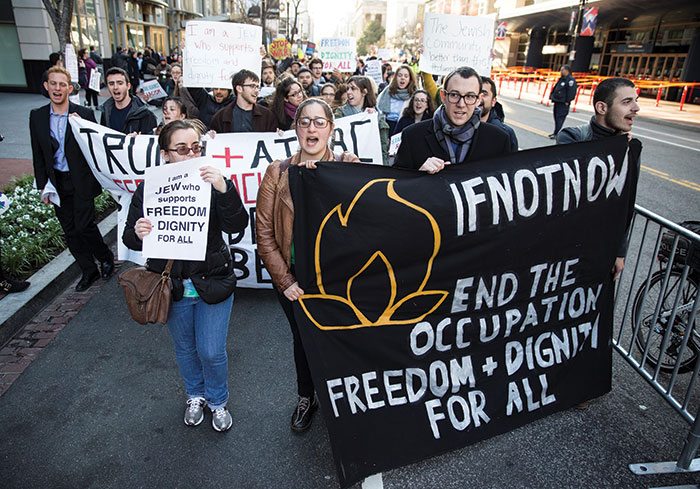
The same is true on campus. Jewish university students of different religious preferences generally pray in separate minyanim. Yet when they meet in the hallways after worship, their theological and halakhic disagreements rarely give rise to debate; hardly any American Jewish student I have spoken with can recall a heated discussion over a religious matter on campus (except, occasionally, within Orthodox circles, where women’s issues still arouse passionate debate). But invite to campus a speaker on Israel or put up a flyer for AIPAC (or IfNotNow), and fireworks will follow.
Which social media posts are more likely to go viral in the Jewish world—religious claims or political ones? And perhaps most tellingly,over what issues are rabbis more likely to be fired: theology or politics?
Almost a century ago, Eugene Kohn wrote that “the conditions under which Judaism must maintain itself, if it is to survive in the modern American environment, are so different from those that have confronted the Jewish people in other times and places that Jews naturally ask themselves what sort of Judaism will emerge as a result of Jewish efforts at adaptation.” We now know what sort of Judaism has emerged. It moved away from the sense of being a distinct nation and then found itself separated from religion as well. The question is whether what has been wrought is a Judaism that can “survive in the modern American environment.” If it is not—and it isn’t—is a new reimagination of American Jewish life possible?
It is important to acknowledge that the social waters of America may have flowed for too long and too forcefully for any theological dam to have withstood them, no matter how well built; it is quite possible that even if our forebears had made different intellectual and spiritual choices, we might still find ourselves precisely where we are now. Second, the relationship between the masses and their leadership is complex, even dialectical. Very often, rabbis and communal leaders articulate positions at which their flocks have already arrived; one should not overestimate the capacity of a small number of leaders to shift the discourse of millions of people. Still, Jewish “thought leaders” should lead. So it bears asking: Does Judaism-as-politics pose an existential challenge to the future of American Jewish life? And if so, why?
The first and most important reason that Judaism-as-politics does represent an existential threat is that, at least in the way that Judaism-as-politics has emerged in the United States, it lacks a distinctive Jewish voice. Jewish progressives have been talking of tikkun olam for more than a generation now, but that largely misunderstood theological window dressing aside, there is nothing to which they are committed that differs from the agenda of the larger progressive base in America. Neither millennia of Jewish learning nor the thousands of volumes of the Jewish canon have left any discernible mark on Jewish progressivism. As the liberal pundit Peter Beinart has acknowledged, the world of young American Jewish progressives is an “unprecedented experiment about what happens when radical acceptance meets radical illiteracy.”
The politically conservative Jewish world faces its own challenges, but they are different. To their credit, American Jewish conservatives have rejected the antitraditionalism—the hostility of which often morphs into blatant self-abnegation—of the more radical elements of the Jewish left and acknowledged the need to engage with the classic Jewish canon. Eric Cohen (the executive director of the Tikvah Fund, which publishes this magazine and supports Shalem College, where I work) has called for the articulation of “a new Jewish conservatism” that would be “animated by a genuine love and concern for the whole Jewish people” and “born out of the sources of the Jewish tradition itself, out of the hard-won experiences of Jewish history.” That call is critical, for unless it is met, Jewish political conservativism will suffer from the same flaw that Jewish progressivism does: While it might well be naturally more hospitable to religious tradition than progressivism, there would be nothing particularly Jewish about it. After all, although American conservatives are more fractious than ever, they still tend to prioritize freedom of religion, the importance of the nuclear family, the value of religious education, and a commitment to Israel. What should a distinctively Jewish conservatism add to this list?
Could it make space for classical rabbinic
Judaism’s approach to distributive justice in a way that many American
conservatives have not? Can it reflect Judaism’s impatience with an imperfect
world in a way that illustrates how far it is from Jewish progressivism, yet
distinct, as well, from other parts of the American conservative movement? Or
ought it, perhaps, be satisfied with a version of the classic liberal idea in
which the job of politics is merely to create a space in which religion can
flourish, while religion’s role is to articulate a distinctive vision of the
good life that is largely apolitical? All this
remains to be seen; how Jewish scholars and thinkers respond to Cohen’s
challenge will be a critical test of the viability of a distinctive Jewish
American conservative voice.
When Judaism becomes nothing but politics, what remains of the moral conflicts, the self-conscious cognitive dissonance that is at the heart of rabbinic literature? Where are the echoes of the perennial struggle between the universal and particular? Where is the balance between a sense of humankind’s grandeur and the inconsequentiality of our lives?
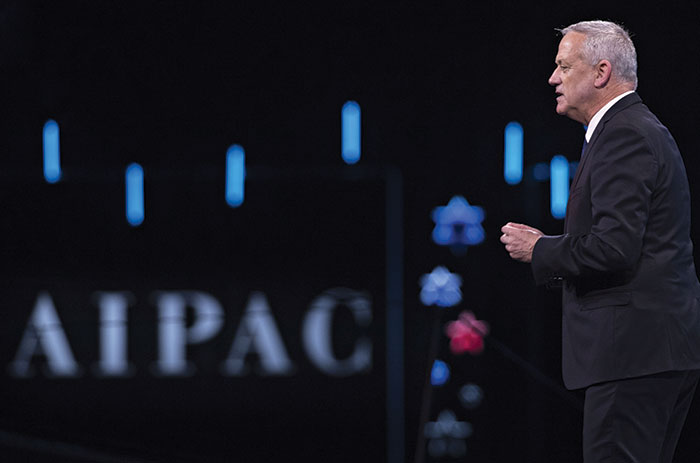
Perhaps the reason that Michael Chabon can say that Jewish survival may not matter is that he lives in a segment of the Jewish world in which far too many people, including their leaders, have nothing uniquely Jewish to say. Tellingly, some other contemporary Jewish writers have begun to sense that something is amiss. A rabbi in Jonathan Safran Foer’s novel Here I Am describes the American Jewish project: “To achieve, yes, but not to draw undue attention to ourselves in the process. We’ve organized our lives around the will to perpetuate our lives.” Foer contrasts his empty American Jewish characters with boisterous, self-confident Israeli cousins. The point is not that Israel has won and America has lost; the point is that when rooted in deep wells of Jewish content, radical reimaginations of Judaic life are possible.
A renewed process of reimagination (or “adaptation,” as Kohn called it) may also be necessary—and this is the second major issue with Judaism-as-politics—because America itself is now proving that not drawing “undue attention to ourselves” may not ensure Jews the comfort they once imagined it would. Increasing numbers of Jews may soon find themselves ill at ease in the parties that have long been their homes. Many left-leaning Jews are feeling ill at ease in a Democratic Party that is increasingly hospitable to unabashed Israel-hatred rooted in something far deeper than critique of Israel’s policies or current leadership. And, despite its unquestioned support for Israel, many Jewish Republicans find the party of Trump increasingly at odds with their vision of a dignified politics that is thoughtful, gracious, and open to the world. When Judaism becomes politics just as the political space narrows, where will the Jews go?
If it is not too harsh to call contemporary American Jewish life a failure of reimagination, perhaps this is the moment that summons us to a new vision that might, just might, withstand the vicissitudes of America.
Is it possible? The reimagination of Judaism called Zionism rebelled against Jewish tradition but kept many of its building blocks. Echoing the worldview of the Bible, it was a product of Jewish dissatisfaction with the world; after all, it was a response to Europe’s betrayal. Zionism placed peoplehood in a nationalist frame while rearticulating a deep attachment to Eretz Yisrael. And it evolved a new set of rituals to which many Israelis genuinely feel bound, commanded by history no less (and often much more) than by God. Even as most Zionists jettisoned God, they retained the love affair with the written Jewish word. They understood the power of a distinctively Jewish language.
Of course, for all the seemingly insurmountable challenges Zionists faced, they reimagined Jewish life without the pressure to conform to a majority culture. Moreover, enemies provided a constant reminder that they needed to be able to explain to each succeeding generation why they had returned to the Land of Israel and why they were staying. Zionists were able to fashion a society in which their language was the lingua franca and their culture was the air which all would breathe.
None of this was ever going to be possible in America. American Judaism in the 21st century will have to look to other models, or, perhaps, create something new, but one thing is certain: Judaism-as-politics will not hold. Will we have the fortitude to return to the deep wells of Torah and try again? The good news is that across Jewish America, there are places where real conversations, informed by Jewish texts and ideas, are taking place. Of course, most of these conversations are happening in the synagogues, schools, yeshivot, batei midrash, and outreach centers of the Orthodox community, but given that Orthodox Jews make up well under 20 percent of American Jewry, this indicates the magnitude of the problem. There are also programs like those created by Hadar, the Hartman Institute in North America, the AVI CHAI Foundation, and the Tikvah Fund, among others. These are often conversations about Israel, but they also invoke God, visions of humanity, debates about what a Jewish morality demands: These are religious conversations at their best, and they are also distinctly American. Yet if the good news is that we know that it can be done, the sadder news is that statistically, almost none of Jewish America is doing it. Can American Jews reimagine Judaism as something greater than a politics once again? If so, it might still find a distinctively American way of Jewish life that genuinely dreads the possibility of dying—because it knows what would be lost—and thus chooses life.
Comments
You must log in to comment Log In
Suggested Reading
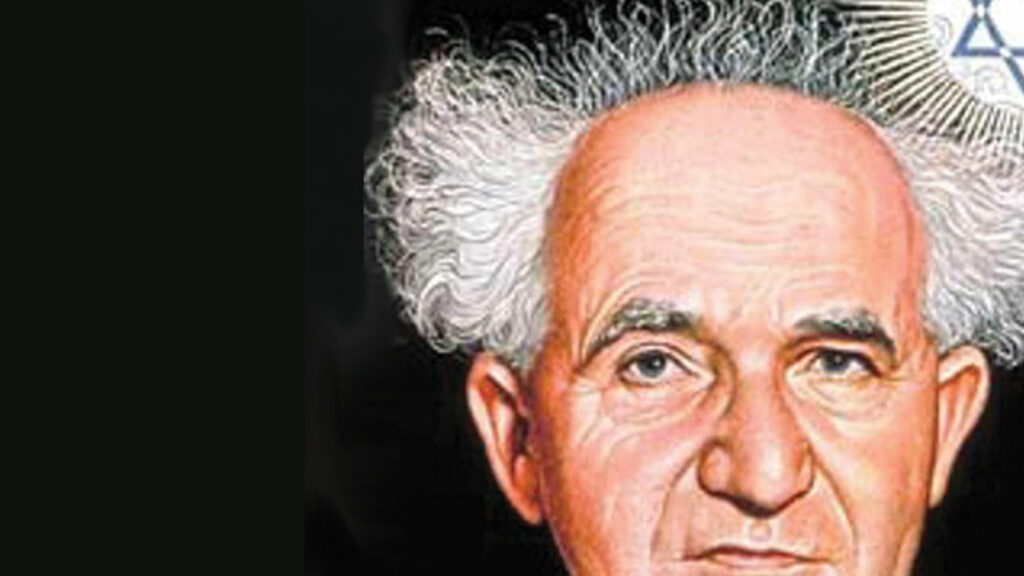
Indispensable Man
In his effort to cut David Ben-Gurion down to size, Tom Segev blames him for failures that were not his and gives him insufficient credit for his achievements. A closer examination of the historical record reveals a greater man than the one Segev attempts to dissect.
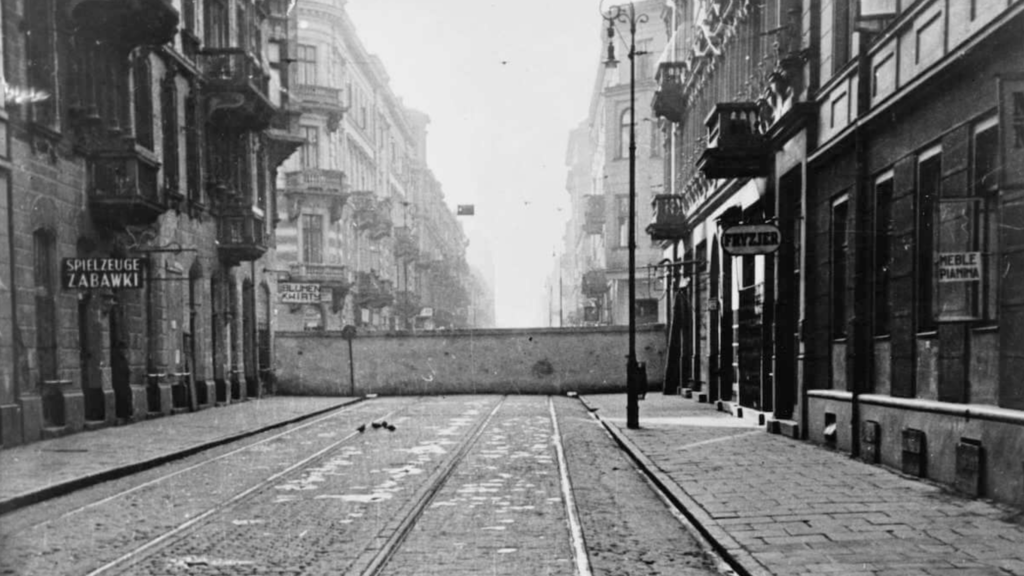
Unquiet Ghosts of the Ghetto
As we mark the 80th anniversary of the fall of Poland to the Germans in World War II, a new documentary gives a glimpse inside the Warsaw Ghetto.
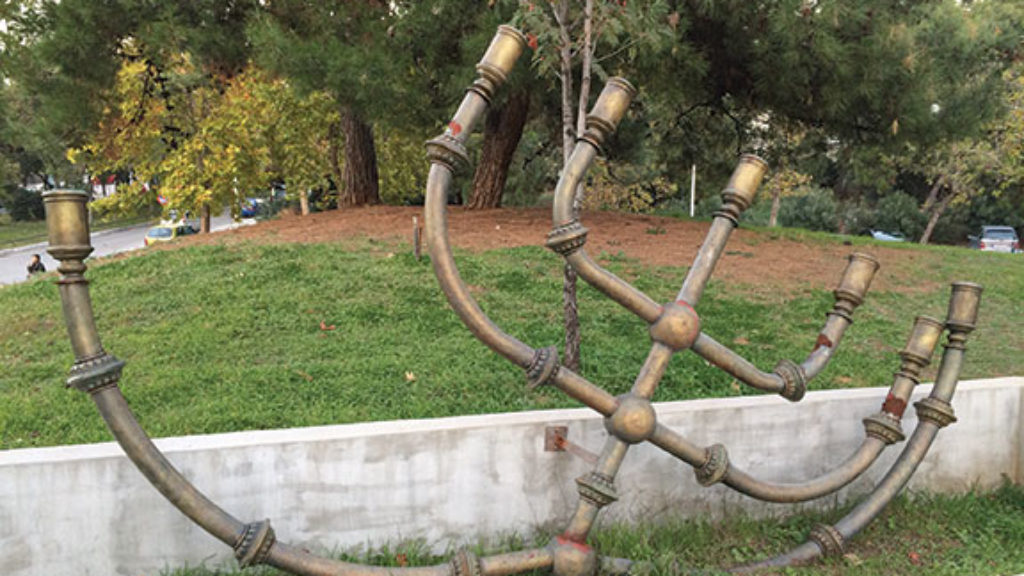
Memory and Desecration in Salonica
Memory and a vandalized memorial in a once-Jewish city on the Aegean Sea.
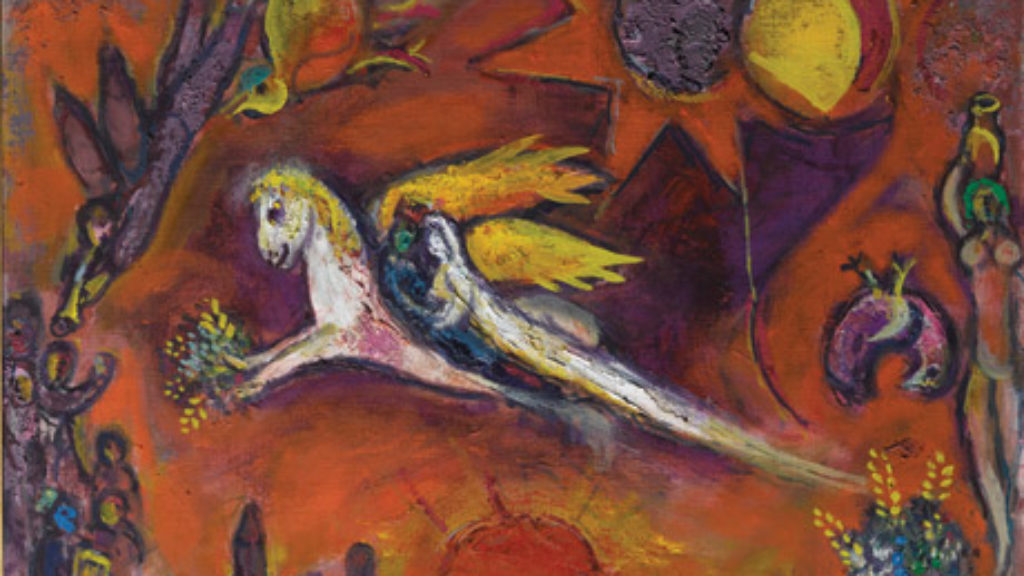
I Have Come to My Garden
Without the Torah, says Rabbi Akiva, we would still be able to discover all its truths by delving deeply into the words of the Song of Songs.
Phil Cohen
It seems to me that this article is based on a fallacy. Daniel Gordis appears to imagine some American Jewish past in which the Jewish community writ large participated in a feast of communal learning, Jewishly considering ideas and impressing them into service. Those days, he seems to be saying, are gone to be replaced by political discussions about this and that (but mostly about Israel) without basis in Jewish ideas.
He may well be correct about this assessment of the Jewish present in the US, but the universe in which I was raised and think I understand was never filled with Jewish laypeople engaging in the study of Jewish ideas.
In fact I suspect that the Jewish present has many more folks engaged in various sorts of study than anything in the American Jewish past. This doesn't obviate Gordis's thesis, for these constitute a small minority of the community. His fear of American Jews failing to reinterpret the meaning of our existence may be correct.